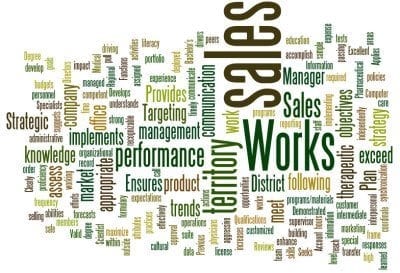One of the most frustrating aspects of a job search is the creation of an effective resume. If you are going at it alone in the writing of your resume, it’s important that you understand all of the components that this document needs in order to not only reflect you in the best possible light, but to also meet the expectations of hiring managers and recruiters.
The list of what these professionals are looking for goes on and on, and it is different for every industry and position. However, there is one thing that is consistent across all of them and that is the need to use the right keywords.
Keywords: Two Definitions
Now, there are two different ways to look at the use of keywords in a resume.
- The use of action verbs. Every single sentence in a resume should begin with a strong action verb. Some great examples include spearheads, champions, leads, manages, directs, liaises, supervises, etc. These are the action verbs that will showcase your ability to get things done in the workplace. Just make sure not to overdo the use of a specific word, as repetition will completely zap any power that the word may originally hold.
- The use of industry- or position-specific verbiage. When filling a position, hiring managers and recruiters will look for candidates who possess the skills and experience they deem appropriate. This means that they may scan the resumes for very specific keywords before they even read them. In this case, it is critical that the verbiage used in the resume is the same that they use in the job description, as odds are that these are the terms they will key into the scanner when conducting their search.
So, How Do You Know Which Keywords to Use?
In terms of the first definition of “keyword,” the action verbs that you use should be strong and relevant. Never overstate your work experience or accomplishments, but now isn’t the time for humility, either. Strive for an accurate representation of your work, accomplishments, and capabilities using words that show your active participation in your development as a professional.
The use of the right action verbs can really make your resume stand out. Consider the following example.
What you might see on a typical resume:
“Responsible for hiring, scheduling, and training new employees.”
What you want to see on your resume:
“Hired and trained new employees while leveraging strategic scheduling tactics to improve departmental efficiency and productivity.”
But what about the second use of the term “keyword”? How are you to know what, exactly, companies are looking for when they run your resume through a scanner?
The short answer to that second question is that you simply can’t. No one can predict what a hiring manager or recruiter will put into the scanner or what they will, specifically, look for when weeding through the pile of resumes in their inbox. But there is a good chance that these professionals are looking for exactly what they advertised, meaning that you would do well to take cues from the job description itself.
For example, a job description might list customer service as a main priority of the position. Another might list this same skill as customer support. Just make sure that you’re using the verbiage that fits the job to which you are applying.
Having trouble figuring out what keywords to use? Not sure where to start in crafting your resume? No worries, Grammar Chic, Inc. can help!



